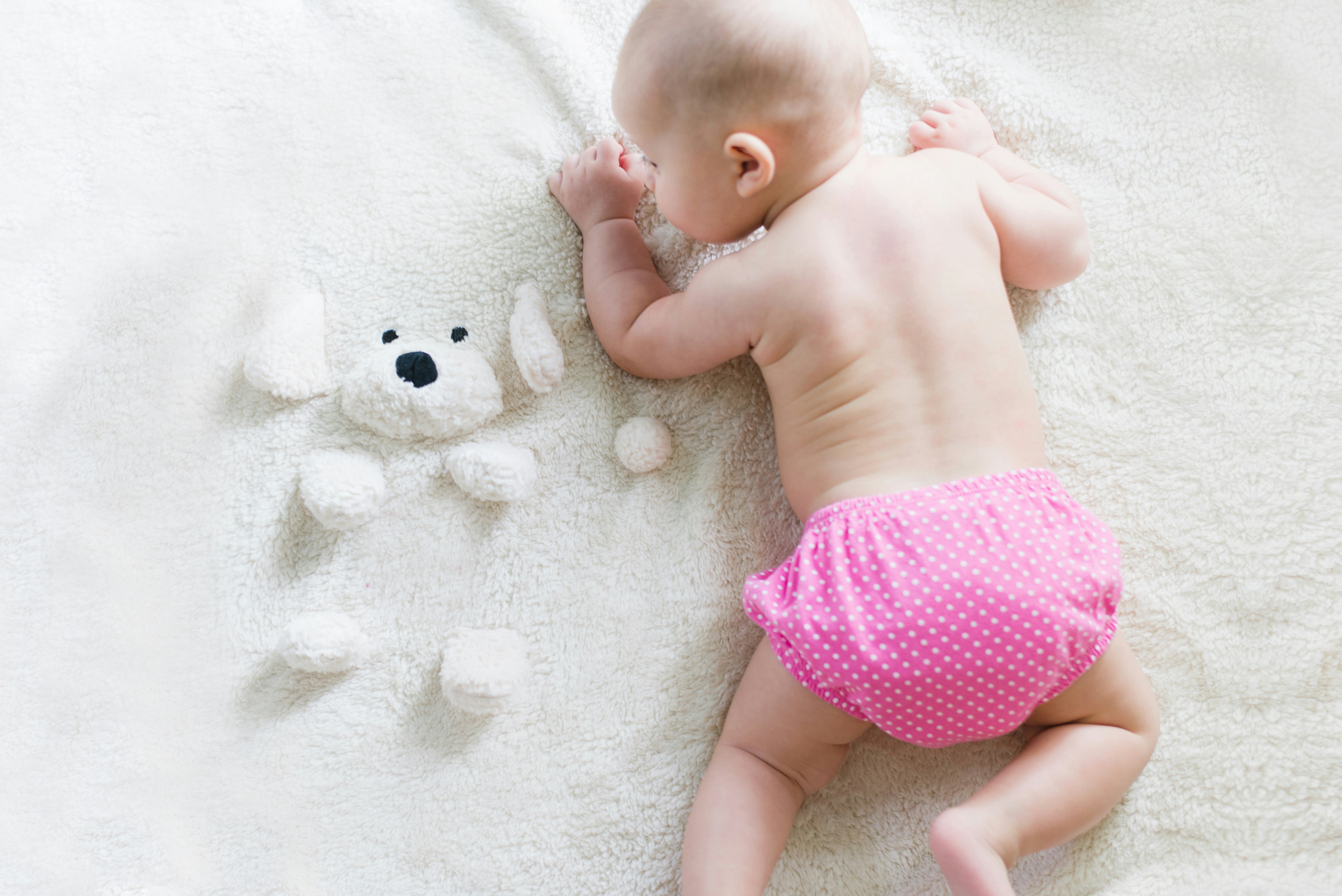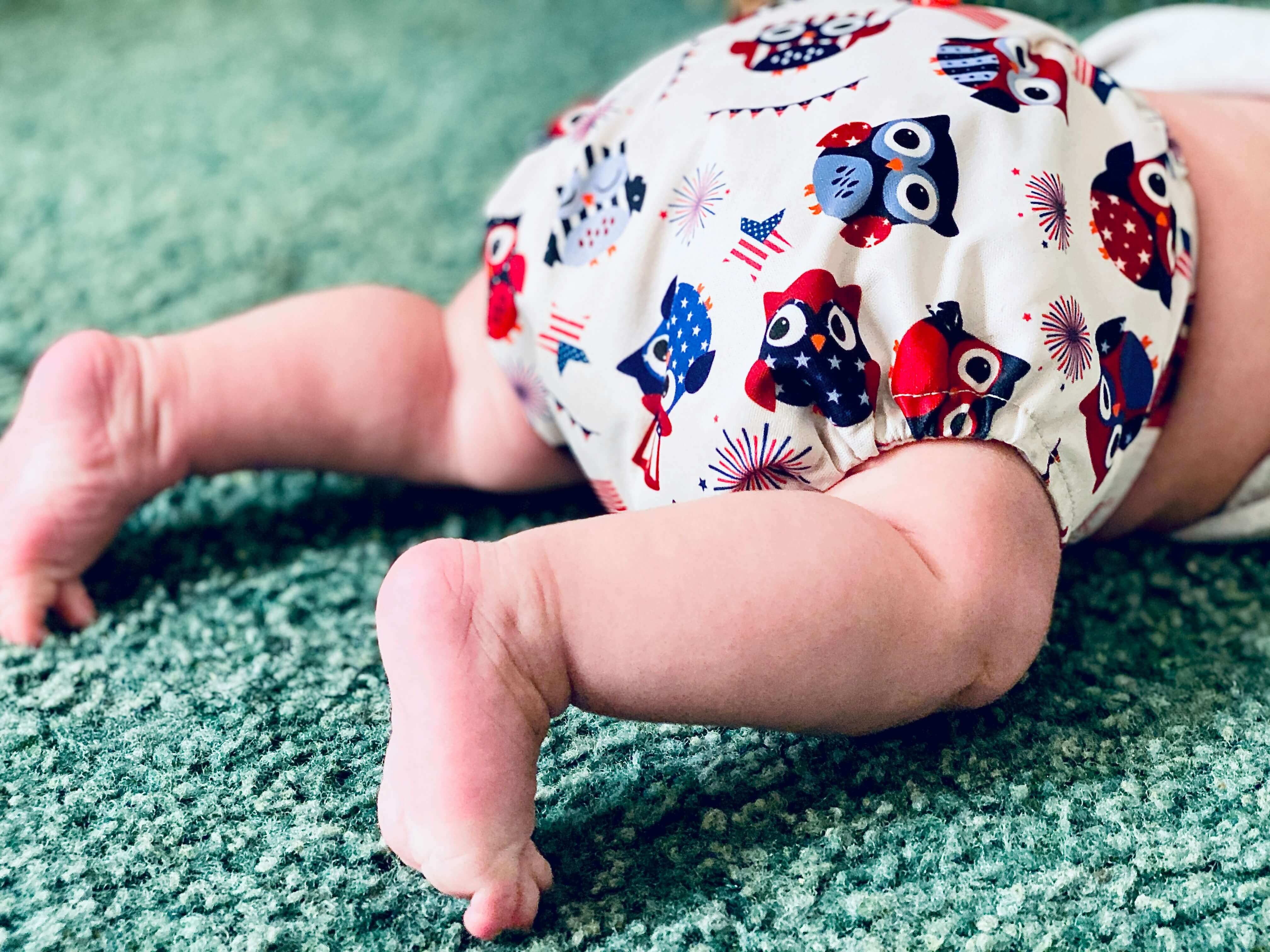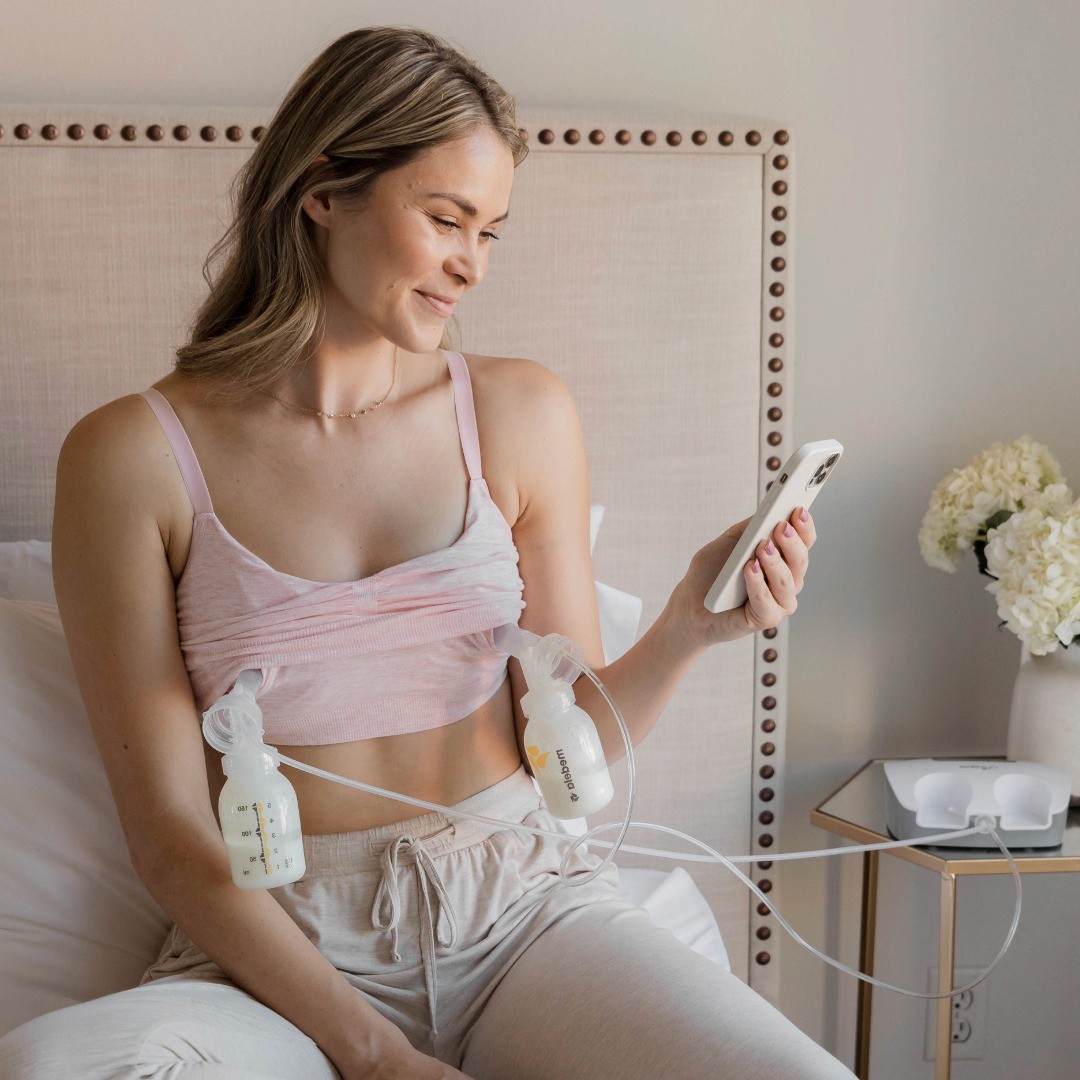HSA/FSA
Parents Want to Know: Are Diapers FSA Eligible?
This baby essential can be a burden on budget.
November 20, 2024

Sam O'Keefe
Co-founder & CEO of Flex


Overview
Overview
Overview
The average family shells out around $1,000 a year for diapers — a steep price for something so essential and expendable.
For frugal parents looking for a bit of financial relief, the question is, can you buy diapers with your FSA?
Read on to learn whether diapers and diaper-related supplies are covered by your FSA (Flexible Spending Accounts), and what other baby items may qualify.
Let’s Cut to the Chase: Are Diapers FSA Eligible?
If you’re a new parent hoping to save some dough on diapers, we have some disappointing news: diapers for newborns and infants are not FSA-eligible.
Baby diapers are typically considered a “general health” product, not a medical necessity. That is to say, they dont help prevent, mitigate, or cure a specific health condition during this developmental period. This means they don’t meet the IRS’s criteria for HSA & FSA-eligible items.
However, there is a notable exception: diapers used to relieve the effects of a specific disease or medical condition may qualify if you have a Letter of Medical Necessity (LOMN) from a pediatrician or other medical practitioner. We share some examples that may qualify below.
Why are diapers not FSA eligible?
The IRS has pretty strict guidelines around what items qualify as FSA expenses. To simplify, an item must be used primarily for the diagnosis, treatment, or mitigation of a specific medical condition, or it must affect a structure or function of the body.
For babies, however, incontinence is considered a normal bodily function, not a medical issue, so infant diapers are not eligible for reimbursement. The IRS sees diapers as a general necessity, not a medical one, which is why they’re off-limits for most families.
In what cases may diapers be FSA eligible?
However, while most baby diapers aren’t eligible for reimbursement, there are situations where they may qualify.
If a baby has a skin condition, such as eczema, an allergy, or a rash, diapers made of specialized materials or properties, like being hypoallergenic, may qualify with a LOMN. You may also pair this with diaper rash cream or ointment, which is FSA and HSA eligible,
Further, diapers for older children and adults used to treat symptoms of an underlying medical condition, like incontinence, are generally eligible for HSA or FSA reimbursement with a LOMN.
A Letter of Medical Necessity, or LOMN, is like a doctor’s note that allows doctors to make determinations on behalf of patients, to qualify certain purchases for HSA or FSA spending. The LOMN must outline why a specific purchase is medically necessary for an individual and how it addresses a specific condition.
As always, it’s best to check with your benefits administrator to confirm what documentation you might need.
Are adult diapers FSA eligible?
Adult diapers are typically used to manage incontinence due to a medical condition — a specific health need — so they are FSA-eligible.

Unfortunately, in most cases diapers are not FSA eligible, because they are considered a “general health” item.
How About Diaper Accessories and Potty Training?
Items like baby wipes, powders, and ointments are all essentials, and we’re sure you’re wondering if they’re covered. Here’s a rundown of what’s eligible and what’s not so you can plan, and save, accordingly.
Are baby wipes FSA eligible?
Although baby wipes are an everyday staple for diapering, they’re not considered FSA-eligible. Sadly, neither is baby powder.
However, if your baby is dealing with diaper rash, there is some relief: anti-rash creams and ointments are eligible for FSA reimbursement. These products are used to treat a specific skin condition, so they qualify as a medical expense.
Are diaper bags covered by HSA or FSA?
When you’re lugging around diapers, wipes, snacks, and every toy imaginable, a diaper bag can feel like a health essential. Yet as handy as they are, diaper bags don’t make the cut for HSA or FSA eligibility.
Are bedwetting or potty training products FSA-approved?
If your child is dealing with bedwetting, incontinence and potty training products for older children are FSA eligible.
Bedwetting, technically known as nocturnal enuresis, can sometimes persist into elementary school years. In these cases, bedwetting alarms or other aids are often covered by FSAs and HSAs. However, if your child is in the potty training stage, potty training products aren’t considered reimbursable expenses, as potty training is considered to be a normal part of development.
So, while you may be on your own for pull-ups and potties, if your child continues to struggle with bedwetting past typical potty-training years, these items could qualify.
Tax Saving Prospects for Parents: HSA and FSA Eligible Baby Items
While regular diapers and baby wipes might not qualify for HSA or FSA use, plenty of other baby products do. Here’s a quick list of common baby items that are typically eligible for reimbursement:
Breast pumps and pumping accessories
Prescription medications for infants
Thermometers
Baby monitors (for medical purposes, such as respiratory monitors for infants with specific medical conditions)
Anti-rash creams and ointments
Child-proofing items (for children with specific medical conditions requiring safety modifications)
For a full list of approved baby items, check out our HSA and FSA-Eligible Baby Items guide.

There are many mom and baby-related items that are FSA eligible, though, such as breast pumps and pumping accessories, including speciality nursing wear. Source: Kindred Bravely
How Flex Can Help You Pay for FSA-Eligible Baby Items
For parents looking to maximize savings on eligible items, Flex partners with many mom and baby brands to streamline how you can use HSA and FSA funds on healthcare expenses.
Step 1: Add the HSA/FSA-eligible product you want to your cart
Flex to make purchasing products with your HSA/FSA much easier. To start, simply add the eligible item to your cart.
Step 2: Select “Flex | Pay with HSA/FSA" at checkout
You can buy these items directly from the company by selecting “Flex | Pay with HSA/FSA" as your payment option at checkout. You can then use either your HSA/FSA card or pay out-of-pocket with a regular credit or debit card (and receive the required documents to submit for reimbursement via email).
Step 3: Keep Documentation
Keep all documentation, including receipts and the Letter of Medical Necessity (should it be necessary), for tax purposes and to ensure compliance with IRS regulations.
It’s as easy as that! Note that in some cases, your FSA may ask for further details, like an itemized receipt, which Flex will provide.
Wrapping Up: Make the Most of Your HSA/FSA for Baby Essentials
When it comes to saving money on baby care essentials, HSAs and FSAs can get a bum rap.
However, while standard baby diapers don’t qualify, certain exceptions — anti-rash creams, bread pumps, and baby monitors, among others — can help relieve some of the financial burden.
By understanding what is eligible, you can be strategic with your tax-advantaged accounts and focus on what matters most for your family — a process made as smooth as a baby’s bottom with Flex by your side!
The average family shells out around $1,000 a year for diapers — a steep price for something so essential and expendable.
For frugal parents looking for a bit of financial relief, the question is, can you buy diapers with your FSA?
Read on to learn whether diapers and diaper-related supplies are covered by your FSA (Flexible Spending Accounts), and what other baby items may qualify.
Let’s Cut to the Chase: Are Diapers FSA Eligible?
If you’re a new parent hoping to save some dough on diapers, we have some disappointing news: diapers for newborns and infants are not FSA-eligible.
Baby diapers are typically considered a “general health” product, not a medical necessity. That is to say, they dont help prevent, mitigate, or cure a specific health condition during this developmental period. This means they don’t meet the IRS’s criteria for HSA & FSA-eligible items.
However, there is a notable exception: diapers used to relieve the effects of a specific disease or medical condition may qualify if you have a Letter of Medical Necessity (LOMN) from a pediatrician or other medical practitioner. We share some examples that may qualify below.
Why are diapers not FSA eligible?
The IRS has pretty strict guidelines around what items qualify as FSA expenses. To simplify, an item must be used primarily for the diagnosis, treatment, or mitigation of a specific medical condition, or it must affect a structure or function of the body.
For babies, however, incontinence is considered a normal bodily function, not a medical issue, so infant diapers are not eligible for reimbursement. The IRS sees diapers as a general necessity, not a medical one, which is why they’re off-limits for most families.
In what cases may diapers be FSA eligible?
However, while most baby diapers aren’t eligible for reimbursement, there are situations where they may qualify.
If a baby has a skin condition, such as eczema, an allergy, or a rash, diapers made of specialized materials or properties, like being hypoallergenic, may qualify with a LOMN. You may also pair this with diaper rash cream or ointment, which is FSA and HSA eligible,
Further, diapers for older children and adults used to treat symptoms of an underlying medical condition, like incontinence, are generally eligible for HSA or FSA reimbursement with a LOMN.
A Letter of Medical Necessity, or LOMN, is like a doctor’s note that allows doctors to make determinations on behalf of patients, to qualify certain purchases for HSA or FSA spending. The LOMN must outline why a specific purchase is medically necessary for an individual and how it addresses a specific condition.
As always, it’s best to check with your benefits administrator to confirm what documentation you might need.
Are adult diapers FSA eligible?
Adult diapers are typically used to manage incontinence due to a medical condition — a specific health need — so they are FSA-eligible.

Unfortunately, in most cases diapers are not FSA eligible, because they are considered a “general health” item.
How About Diaper Accessories and Potty Training?
Items like baby wipes, powders, and ointments are all essentials, and we’re sure you’re wondering if they’re covered. Here’s a rundown of what’s eligible and what’s not so you can plan, and save, accordingly.
Are baby wipes FSA eligible?
Although baby wipes are an everyday staple for diapering, they’re not considered FSA-eligible. Sadly, neither is baby powder.
However, if your baby is dealing with diaper rash, there is some relief: anti-rash creams and ointments are eligible for FSA reimbursement. These products are used to treat a specific skin condition, so they qualify as a medical expense.
Are diaper bags covered by HSA or FSA?
When you’re lugging around diapers, wipes, snacks, and every toy imaginable, a diaper bag can feel like a health essential. Yet as handy as they are, diaper bags don’t make the cut for HSA or FSA eligibility.
Are bedwetting or potty training products FSA-approved?
If your child is dealing with bedwetting, incontinence and potty training products for older children are FSA eligible.
Bedwetting, technically known as nocturnal enuresis, can sometimes persist into elementary school years. In these cases, bedwetting alarms or other aids are often covered by FSAs and HSAs. However, if your child is in the potty training stage, potty training products aren’t considered reimbursable expenses, as potty training is considered to be a normal part of development.
So, while you may be on your own for pull-ups and potties, if your child continues to struggle with bedwetting past typical potty-training years, these items could qualify.
Tax Saving Prospects for Parents: HSA and FSA Eligible Baby Items
While regular diapers and baby wipes might not qualify for HSA or FSA use, plenty of other baby products do. Here’s a quick list of common baby items that are typically eligible for reimbursement:
Breast pumps and pumping accessories
Prescription medications for infants
Thermometers
Baby monitors (for medical purposes, such as respiratory monitors for infants with specific medical conditions)
Anti-rash creams and ointments
Child-proofing items (for children with specific medical conditions requiring safety modifications)
For a full list of approved baby items, check out our HSA and FSA-Eligible Baby Items guide.

There are many mom and baby-related items that are FSA eligible, though, such as breast pumps and pumping accessories, including speciality nursing wear. Source: Kindred Bravely
How Flex Can Help You Pay for FSA-Eligible Baby Items
For parents looking to maximize savings on eligible items, Flex partners with many mom and baby brands to streamline how you can use HSA and FSA funds on healthcare expenses.
Step 1: Add the HSA/FSA-eligible product you want to your cart
Flex to make purchasing products with your HSA/FSA much easier. To start, simply add the eligible item to your cart.
Step 2: Select “Flex | Pay with HSA/FSA" at checkout
You can buy these items directly from the company by selecting “Flex | Pay with HSA/FSA" as your payment option at checkout. You can then use either your HSA/FSA card or pay out-of-pocket with a regular credit or debit card (and receive the required documents to submit for reimbursement via email).
Step 3: Keep Documentation
Keep all documentation, including receipts and the Letter of Medical Necessity (should it be necessary), for tax purposes and to ensure compliance with IRS regulations.
It’s as easy as that! Note that in some cases, your FSA may ask for further details, like an itemized receipt, which Flex will provide.
Wrapping Up: Make the Most of Your HSA/FSA for Baby Essentials
When it comes to saving money on baby care essentials, HSAs and FSAs can get a bum rap.
However, while standard baby diapers don’t qualify, certain exceptions — anti-rash creams, bread pumps, and baby monitors, among others — can help relieve some of the financial burden.
By understanding what is eligible, you can be strategic with your tax-advantaged accounts and focus on what matters most for your family — a process made as smooth as a baby’s bottom with Flex by your side!
Flex is the easiest way for direct to consumer brands and retailers to accept HSA/FSA for their products. From fitness and nutrition, to sleep and mental health, Flex takes a holistic view of healthcare and enables consumers to use their pre-tax money to do the same.